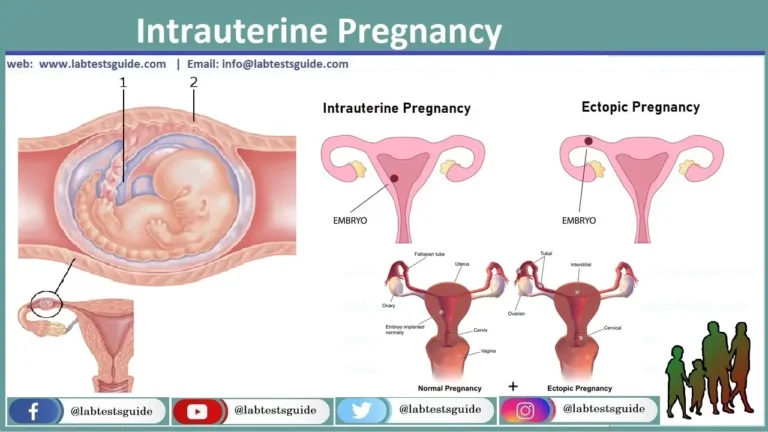(AN-tih-jen) Any substance that causes the body to mount an immune response against that substance. Antigens include toxins, chemicals, bacteria, viruses, or other substances from outside the body. Tissues and cells in the body, including cancer cells, also contain antigens that can trigger an immune response.
- An antigen is a substance that induces an immune response.
- Antigens are foreign and provoke antibody production.
- They enter the body through mechanisms like infections or immune reactions.
- Antigens can be proteins, lipopolysaccharides, glycoproteins, or nucleoproteins.
- The immune system recognizes and differentiates between self and non-self elements.
- Antigens that induce immune responses are also called immunogens.
- Some antigens are self-induced, and the immune system reacts to eliminate both self and non-self antigens.
- Most antigens are large, complex molecules with molecular weights greater than 10,000.
- Small antigens, called haptens, need a carrier protein to induce an immune response.
- The conjugation of a hapten to a carrier protein makes it immunogenic.
- Immune response can target either the hapten or the carrier protein.
- Epitopes are antigen regions that bind to antibodies or T-cell receptors.
- The number of epitopes on an antigen determines the number of binding antibodies, known as valence.

Characteristics of Antigens:
These are the characteristics of antigens:
- For an antigen to trigger an immune response, it must be a foreign substance.
- The molecular mass of antigens ranges from 14,000 to 600,000 Da.
- They are composed mainly of carbohydrates and proteins.
- They will be more immunogenic if they are chemically complex.
- Antigens differ according to species.
- Immunogenicity is influenced by age. Very young or old individuals have very low immunogenicity.
What is antigen in the blood?
An antigen is a substance to which the immune system can react. For example, components of the bacterial cell wall can trigger immediate and severe attacks by neutrophils. If the immune system encounters an antigen that is not found on the body’s own cells, it will launch an attack against that antigen.
Why is it called an antigen?
Any substance that causes the immune system to produce antibodies against it is called an antigen. Any foreign invader, such as pathogens (bacteria and viruses), chemicals, toxins, and pollen, can be an antigen.
Types of Antigen:
Here are the types of antigens categorized according to origin and immune reaction
Types According to Origin:
Depending on their place of origin, antigens can be classified as follows:
1. Exogenous Antigens:
Exogenous antigens come from foreign substances that can enter the body through the nose, mouth or wounds in the skin. These include viruses, bacteria, pollen, parasites and fungi.
2. Endogenous Antigens:
Endogenous antigens exist on cells in the body and tell the immune system whether they are beneficial (“self”) or harmful. These include cells infected with bacteria or viruses that send signals to the immune system to destroy them. Antigens on red blood cells and special markers that the body recognizes as “self” (HLA) are also endogenous antigens.
3. Autoantigens:
Autoantigens are markers of cells in your body that your immune system attacks even though it shouldn’t. Autoantigens cause autoimmune diseases.
4. Tumor Antigens:
Tumor antigens are markers present on the surface of tumors. They are sometimes called tumor-associated antigens (TAA), tumor-specific antigens (TSA), neoantigens, or oncogenic antigens.
5. Alloantigens:
An antigen that has not yet been processed by an antigen-presenting cell is called a native antigen or Alloantigens.
Based on the Immune Reaction:
Antigens can be categorized into the following groups based on the immune response:
1. Immunogen:
An immunogen is a type of antigen that is capable of inducing an immune response in the body. This immune response involves the activation of immune cells, leading to the production of antibodies or the activation of T-cells.
2. Hapten:
A hapten is a small molecule that, by itself, cannot provoke an immune response. However, when it is attached to a larger carrier molecule (usually a protein), it can elicit an immune response by forming a complete antigen.
Antigen Structure and Composition:
Proteins, peptides (chains of amino acids), polysaccharides (chains of simple sugars), lipids, and nucleic acids can all act as antigens. Antigens are present on normal cells, cancer cells, parasites, viruses, fungi, and bacteria. Antigen receptors, such as T-cell receptors and antibodies, can recognize and bind to these antigens.
Applications of Antigens in Diagnostics:
- ELISA (Enzyme-Linked Immunosorbent Assay): Blood samples can be tested for certain antigens or antibodies using the ELISA.
- Rapid Diagnostic Tests (RDTs): These tests use antigen-antibody responses to quickly identify diseases (such COVID-19 and malaria).
- Blood Typing: ABO and Rh factor blood group antigens are identified through blood typing, ensuring safe transfusions.
- Tumor Marker Detection: Quantifies antigens linked to tumors in order to diagnose malignancy.
- Allergy Testing: Allergy testing uses immune response monitoring and antigen exposure to identify allergens.
Antigen Related Diseases:
- Autoimmune Diseases: Autoimmune diseases, such as lupus, rheumatoid arthritis, and type 1 diabetes, are caused by the body attacking its own antigens.
- Allergies: An overreaction by the immune system to environmental antigens that are safe (such as dust mites, pollen, and food allergens).
- Infectious Diseases: Pathogens, such as HIV, TB, and malaria, offer antigens that set off immunological reactions.
- Cancer: Tumor antigens, such as those seen in melanoma and prostate cancer, can either cause immune recognition or be the target of immunotherapy.
- Rejection of Transplants: The immune system targets antigens present in donor organs or tissues (e.g., kidney transplant rejection).
Antigen-Antibody Interaction:
Antigen-antibody (Ag-Ab) interaction is a biochemical reaction between antibodies and specific antigens when they are within a distance of several nanometers. It is the binding of the paratopes of antibodies to specific antigens at their epitopes that initiates a series of immunological responses aimed at acting against the respective antigens for their elimination or destruction.
References:
- Antigens and Immunology – Byjus
- Antigen – Cleveland Clinic
- Antigens: A Comprehensive Guide for Beginners – Microbe Notes
- https://www.news-medical.net/life-sciences/The-Characteristics-of-Antigens.aspx
- https://www.biologyonline.com/dictionary/tolerogen
- https://www.toleranzia.com/technology/tolerogen-platform/
- https://en.wikipedia.org/wiki/Tumor_antigen#:~:text=Tumor%20antigen%20is%20an%20antigenic,cancer%20immunology%20studies%20such%20topics.
- https://www.prospecbio.com/viral_antigens#:~:text=A%20viral%20antigen%20is%20a,influenza%2C%20hepatitis%2C%20%26%20AIDS.
- https://www.creative-diagnostics.com/Viral-Antigens.htm
- https://www.msdmanuals.com/professional/hematology-and-oncology/tumor-immunology/tumor-antigens
- https://en.wikipedia.org/wiki/Cluster_of_differentiation
- https://www.sinobiological.com/research/cd-antigens/what-is-cluster-of-differentiation




